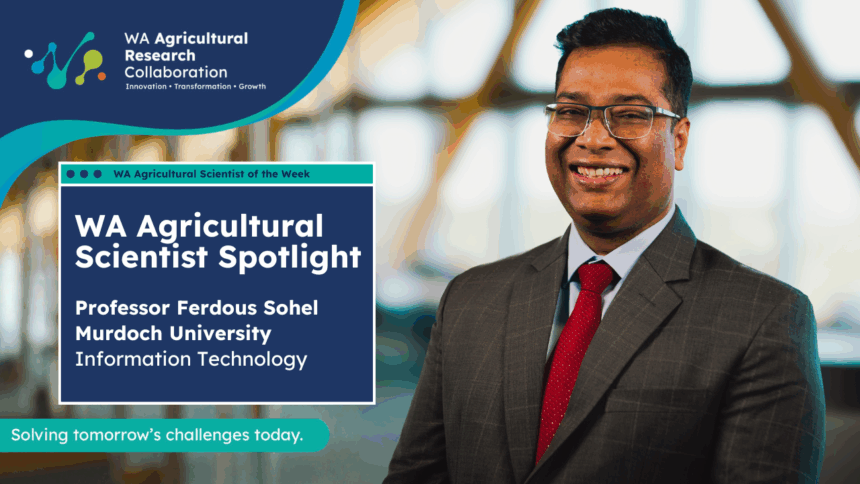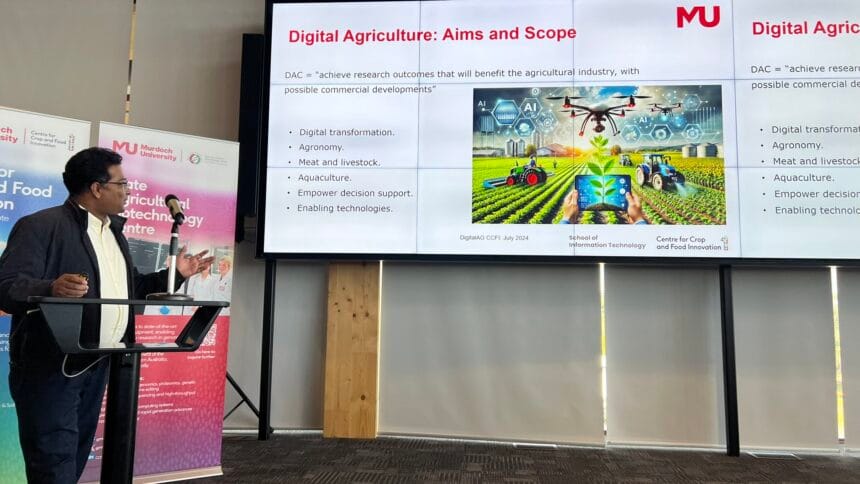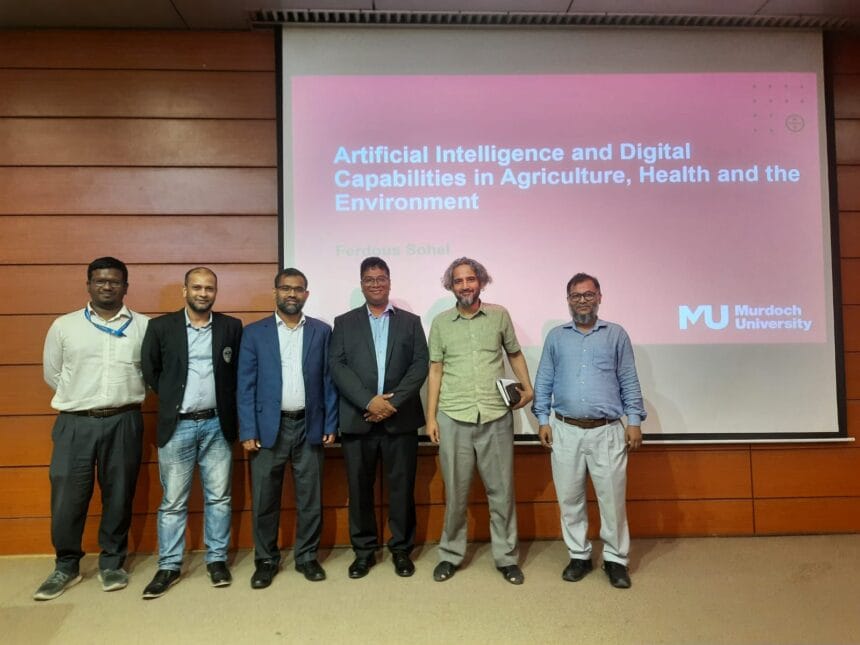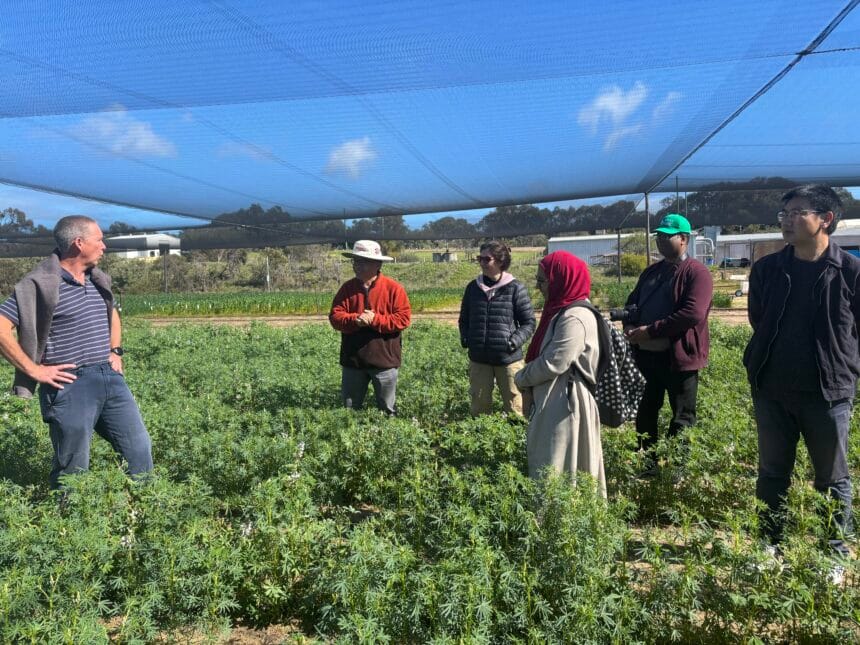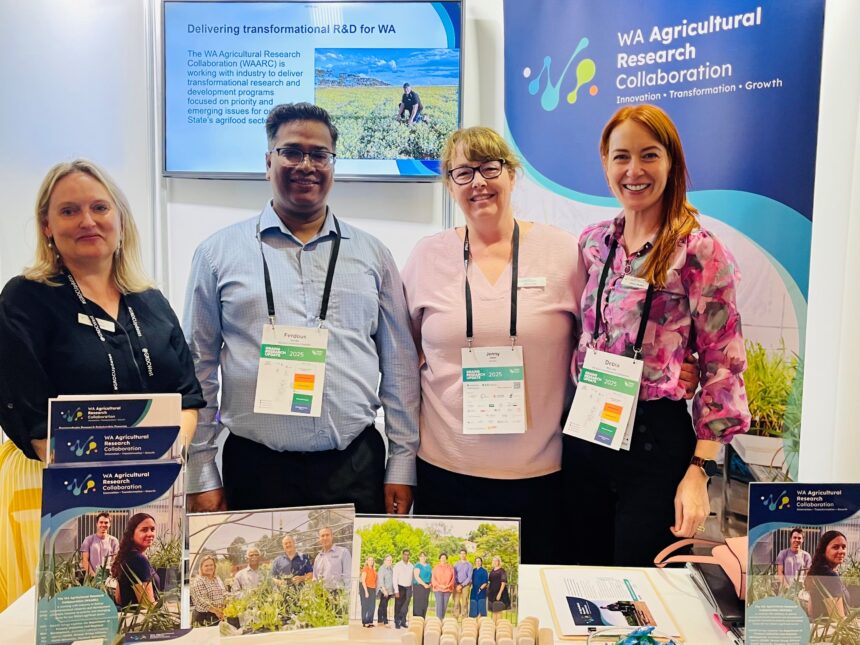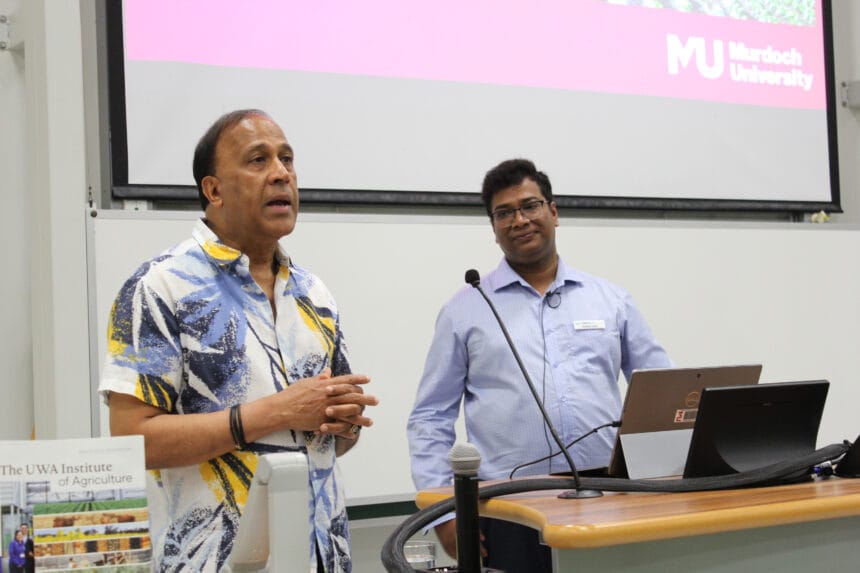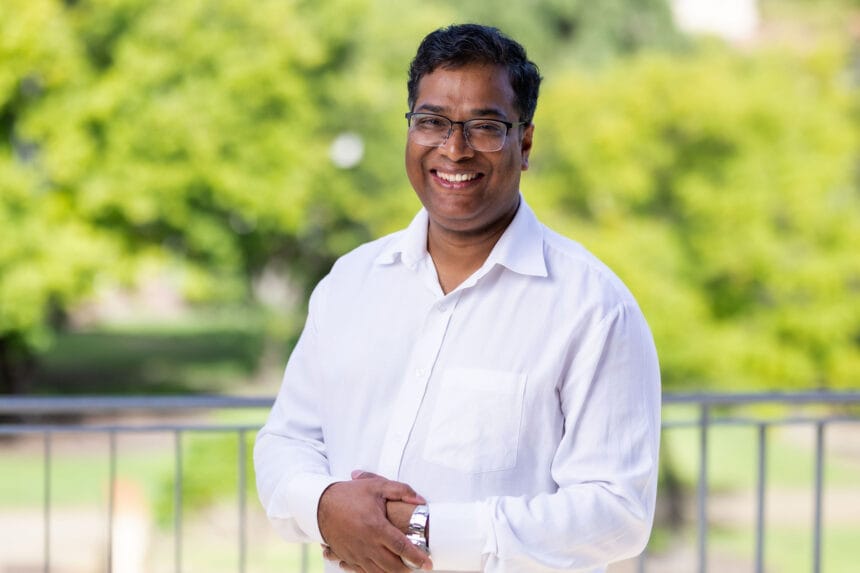Through the WA Agricultural Scientist Spotlight, we share the career journeys, research, and personal insights of scientists shaping the future of food and farming in Western Australia.
This edition features Professor Ferdous Sohel, an academic and researcher at Murdoch University, whose work bridges the worlds of artificial intelligence (AI) and agricultural innovation.
From a childhood surrounded by rice fields and orchards in Bangladesh to leading cutting-edge agtech research in WA, Professor Sohel’s story is one of curiosity, adaptability, and an enduring connection to the land.
From Bangladesh to WA: a journey shaped by land and learning
Growing up in a large, multigenerational household on the outskirts of Dhaka, his family produced much of their own food – rice, fish and vegetables – even though many, including his father, pursued professional careers.
“I am originally from Bangladesh, a small, beautiful country crisscrossed by river systems, full of alluvial land and abundant sunshine – an agricultural heartland,” Professor Sohel said.
“Our home was surrounded by agricultural lands on three sides and an orchard on the other, so farming and agriculture are in my bones.”
After earning a Bachelor of Science in Computer Science and Engineering from Bangladesh University of Engineering and Technology, one of the nation’s most prestigious institutions, he moved to Australia to pursue a PhD at Monash University.
His doctoral work in image processing earned him two best thesis medals, setting the stage for a research career that would combine computational expertise with real-world impact.
His first academic appointment was at The University of Western Australia (UWA), where he spent more than seven years before joining Murdoch University in 2015.
“Both Monash and UWA trained me well and made me resilient, which helped me to thrive at Murdoch University,” Professor Sohel said.
Although his formal training was in computing and AI, Professor Sohel’s transition into agricultural science came naturally.
“I have been trained as a computing professional, but my skills and expertise in AI and imaging are applicable to a variety of areas,” he said.
When Murdoch University’s 10-year research plan prioritised food, health, and environment as strategic pillars, the opportunity to align his expertise with his lifelong connection to agriculture became clear.
“Eventually, I decided to join the Food Future Institute and its Centre for Crop and Food Innovation,” Professor Sohel said.
“It was the more natural and inherent call to make.”
He credits mentors such as Professor Peter Davies, Michael Jones, and Dr Dean Diepeveen for inspiring his move into agtech.
“Their leadership and vision helped me navigate a challenging new research area,” he said.
Building resilience through innovation and collaboration
Prof Sohel formally began his agtech research in 2019, co-establishing the Digital Agriculture theme within Murdoch’s Centre for Crop and Food Innovation.
His early work faced immediate challenges when the COVID-19 pandemic hit.
“Due to border closures, students couldn’t arrive and there were curfews on accessing field resources,” he said.
“We had to recalibrate, instead of collecting field trial data, we focused on laboratory-based and secondary data from collaborators.”
That flexibility paid off, and his team developed novel AI-driven solutions for crop phenotyping and stress detection, leading to highly cited publications and an award-winning PhD thesis.
Today, Professor Sohel’s research focuses on autonomous sensing, navigation, and decision-support systems that can make agriculture more precise, efficient, and sustainable.
“We have been contributing to tools and technologies with autonomous sensing and AI-based decision support toward next-generation agriculture,” he said.
“Our goal is to reduce costs and achieve higher yields.”
He also recognises the challenges that come with AI’s integration into farming.
While AI offers promising advancements, it also demands large training datasets, careful model selection, and strong generalisability.
His team aims to address these challenges in a holistic way.
Their work on digital phenotyping and stress assessment tools represents the most tangible injection of smart technologies to support the agriculture industry.
A balanced life of teaching, leadership, and service
As a senior academic, Professor Sohel’s week is split between teaching, research, and service – each feeding the other.
“I spend about 40 per cent of my time teaching, 40 per cent on research, and 20 per cent on academic service and citizenship,” he said.
He serves as Postgraduate Research Chair in his school, supervises multiple PhD students, and contributes to several university committees.
He also played a leadership role within the WA Agricultural Research Collaboration (WAARC) as the inaugural Program Lead for Agricultural Technologies, helping drive innovation and regional capacity building through technology and automation.
For Professor Sohel, the reward lies in knowing his work matters.
“Working in the agricultural space is rewarding in many ways,” he said.
“Any contribution here has the potential to make high impacts – ensuring food security, saving the environment, and promoting health and well-being.”
From the rice fields of Bangladesh to the laboratories of Western Australia, Professor Sohel’s story is a reminder that innovation thrives where passion meets purpose.
His work not only advances the science of smart farming, but also embodies the collaborative spirit driving WA’s agricultural research forward – connecting technology, people, and the future of food.
Through the WA Agricultural Scientist Spotlight series, WAARC celebrates the contributions of researchers like Ferdous Sohel, whose work exemplifies the dedication and innovation needed to advance agricultural science in Western Australia.
By sharing their stories, the series aims to inspire a new generation to pursue careers in this vital field, ensuring the State remains at the forefront of agricultural research and sustainability.



